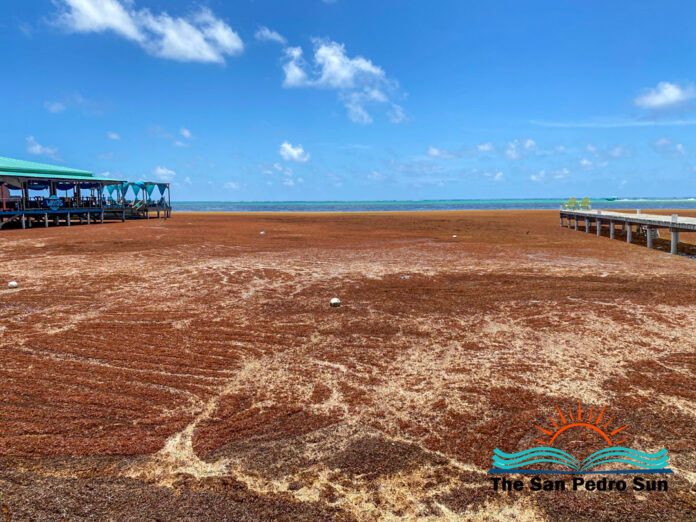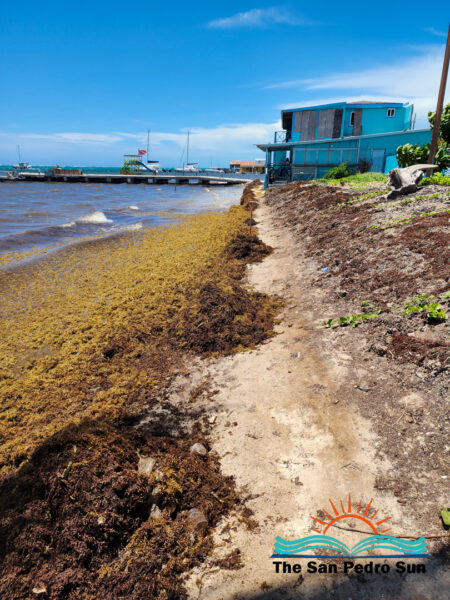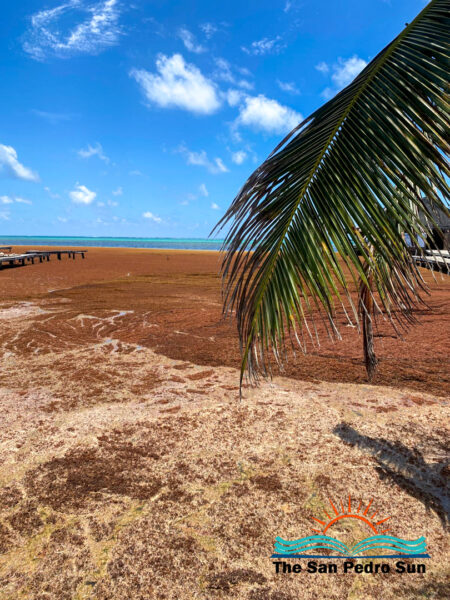Belize’s coastal communities, particularly San Pedro, are facing an overwhelming influx of sargassum seaweed, which threatens marine ecosystems and the tourism industry. Since early this year, beaches have been covered in thick mats of decaying seaweed. At the same time, nutrient-rich runoff from decomposing sargassum has led to a worrying increase in marine life mortality.
The Belize Sargassum Task Force (STF) leads the response, co-chaired by Josue Carballo and Felicia Cruz, Director of the Blue Economy. Carballo explained in an interview on August 26th that the STF is not a standalone agency with its own budget but acts as a coordinating body. “It is basically a coordinating body that meets with different other agencies, and whenever we get a report or update on sargassum, then we basically coordinate and scale up efforts,” he said.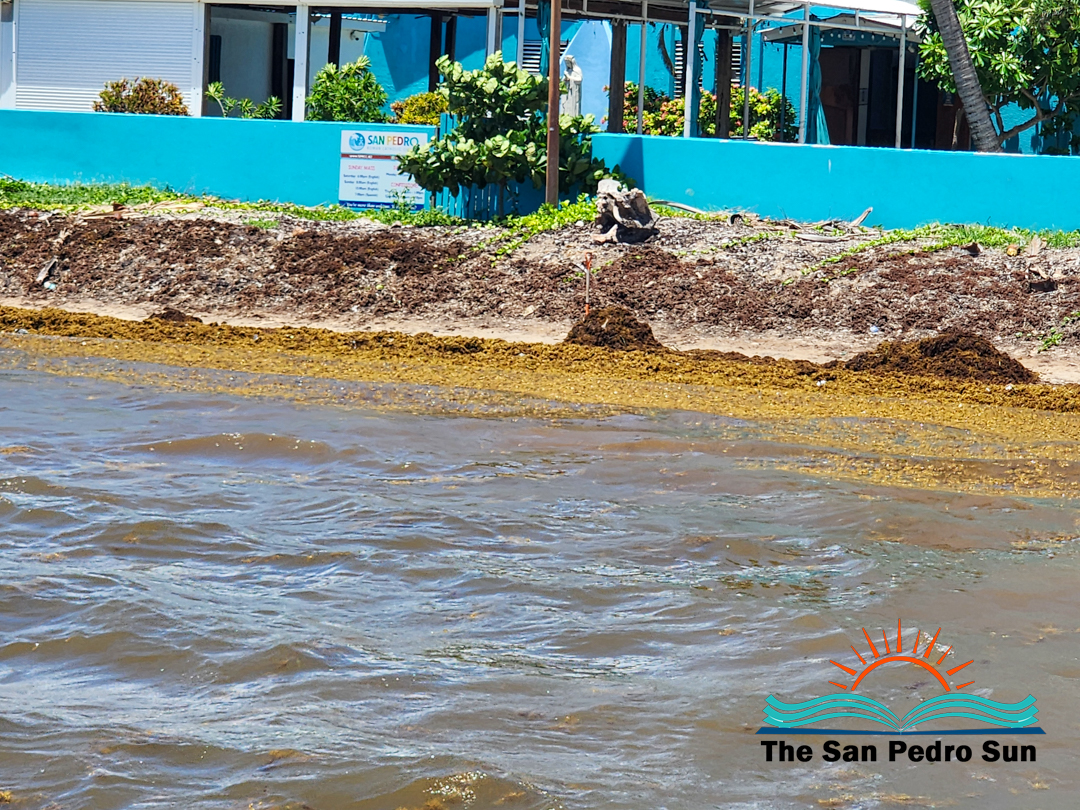
Municipalities, including San Pedro, Caye Caulker, Seine Bight, Hopkins, and Placencia, receive subsidies from the Belize Tourism Board (BTB) to help cover cleanup costs. “We offer assistance to each municipality to subsidize the clean-up cost… It is given in increments of $10,000… depending on municipal reports and needs,” Carballo noted. However, the support is insufficient. San Pedro alone spends an estimated $45,000 weekly on labor and equipment, yet manages to remove only about 40 percent of the seaweed within the critical one-mile stretch from the bridge to Central Park.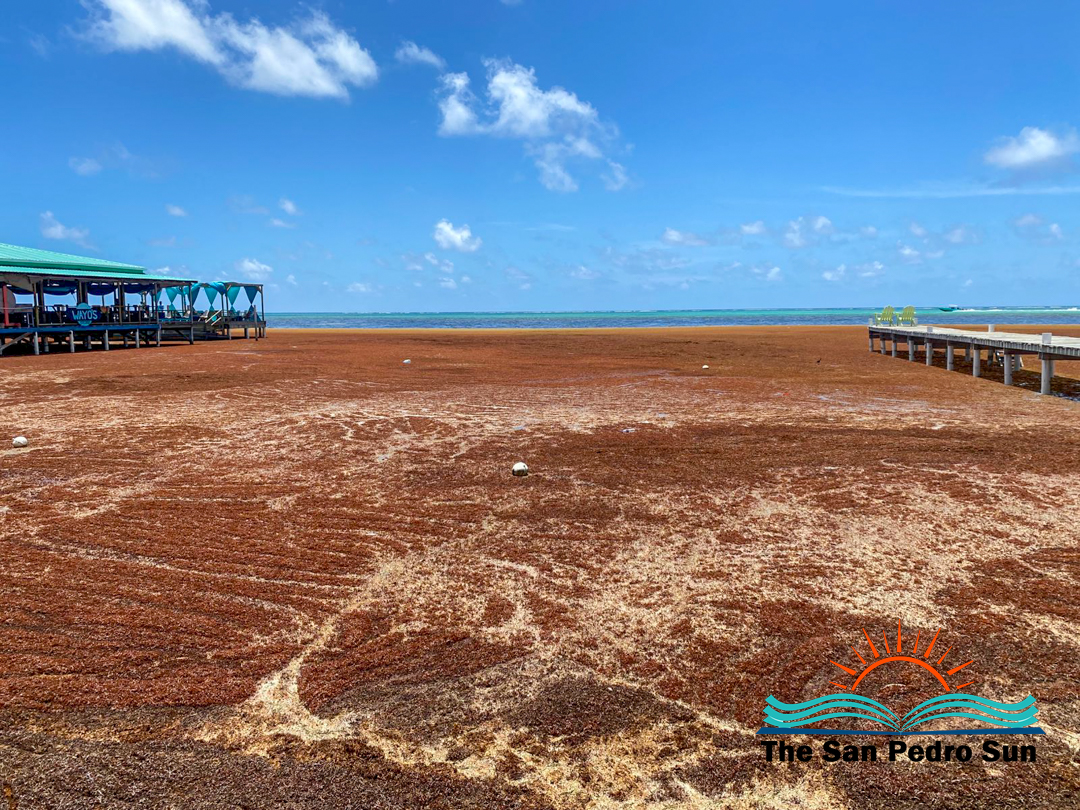
Local authorities say more support is urgently needed. A San Pedro Town Council representative stated, “We already know what needs to be done… we’re not getting the kind of support we should be getting.” Since February, the municipality has received only about $10,000 from BTB, forcing staff and equipment to be diverted from road and waste management duties. Partnerships with private sector entities have provided relief, but resources remain thin.
The environmental impacts are severe. Decaying sargassum produces brown water that compromises marine ecosystems, posing a threat to coral reefs. “Corals are very sensitive. They are being exposed to the brown water from the decaying sargassum, which is harmful and can kill the reef,” said one island resident. Timely management is considered essential for protecting reef health and preventing groundwater contamination.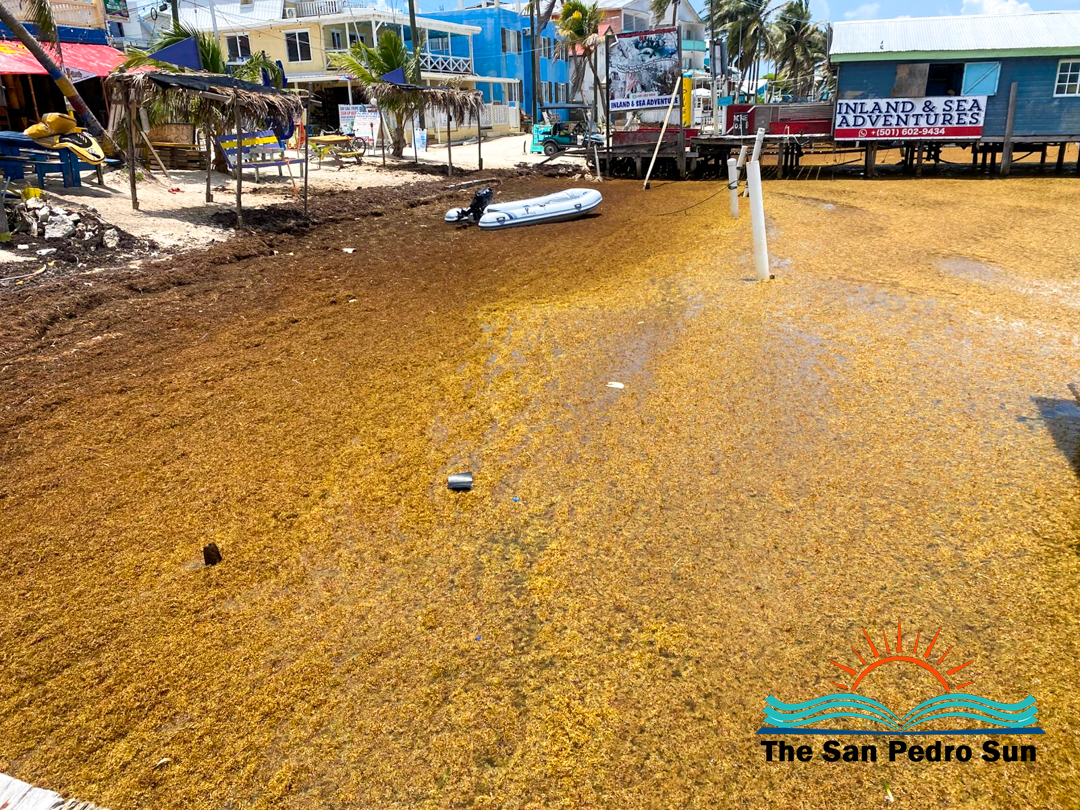
Efforts are underway to improve cleanup operations. Plans include enhancing harvester functionality with barges to increase collection capacity and identifying designated drying sites to reduce odor. “Once it dries off for like 2 to 3 days, there is no more smell,” Carballo said. He added that a new grant program through the Belize Fund for Sustainable Development will provide financial assistance to private businesses managing sargassum outside municipal zones.
Still, stakeholders stress the need for a centralized “beach management” agency. “There is an initiative, hopefully in the near future, to set up an agency that can do beach management. That is something that is missing in our country,” Carballo said.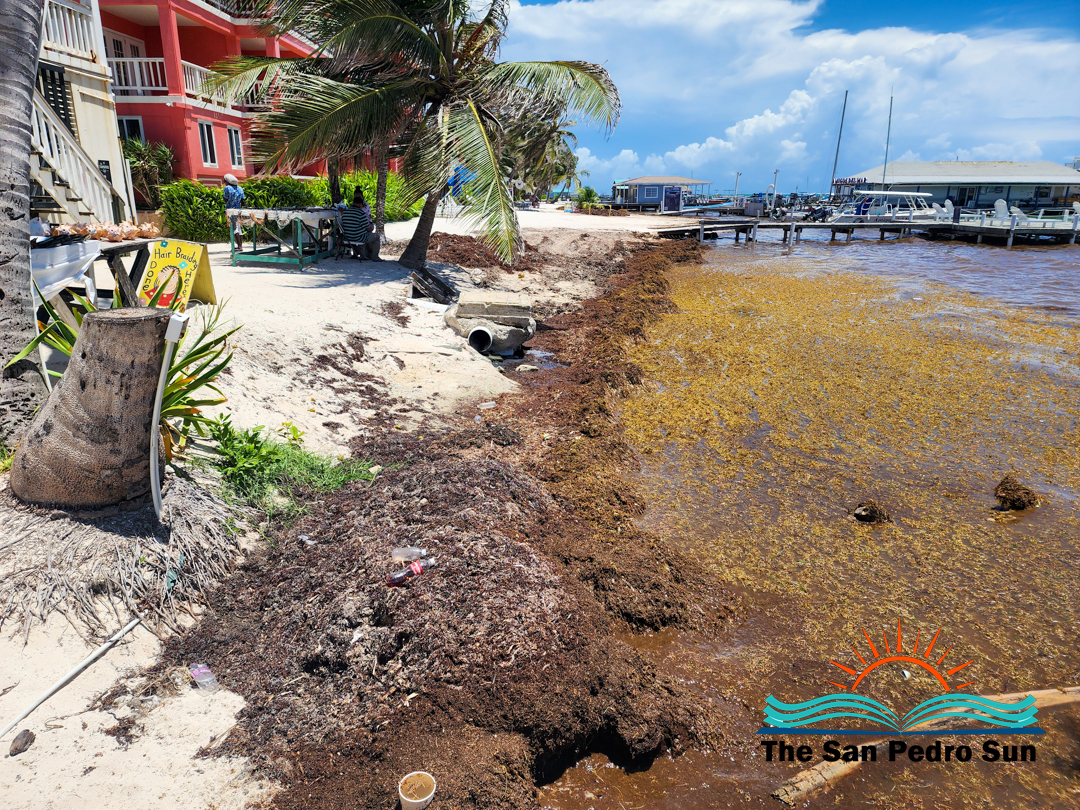
Community involvement remains crucial. Authorities encourage residents to report hotspots and submit drone footage documenting accumulations and marine life deaths to strengthen monitoring efforts. “We listen to our stakeholders… and that’s why I’m just putting it out there,” Carballo emphasized.
As the sargassum crisis continues, striking a balance between environmental protection, tourism, and local livelihoods will require greater investment, coordination, and innovative solutions. San Pedro’s ongoing efforts highlight the challenges and resilience of Belize’s fight against this persistent natural threat.

